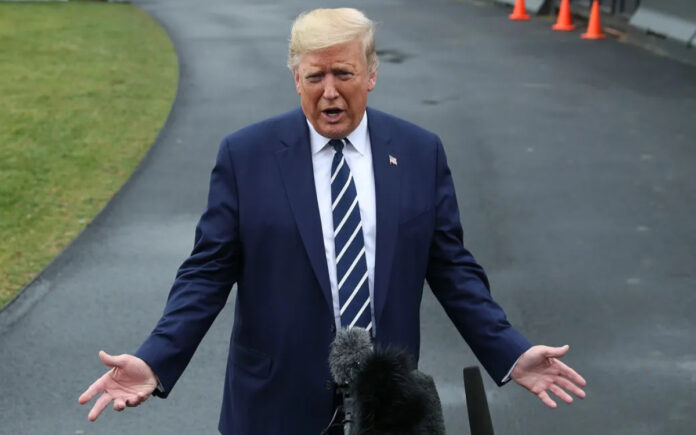New York: Officials from the Trump administration are evaluating significant modifications to a key Biden-era regulation that limits the global distribution of advanced artificial intelligence chips, according to three individuals familiar with the matter. Among the proposals under discussion is the potential elimination of a tiered system that currently governs how many cutting-edge semiconductors nations are allowed to access.
Though still under internal review and subject to change, the proposed adjustments could reshape how the United States manages AI chip exports, offering a more flexible tool in international trade negotiations. Removing the current tier-based framework would allow Washington to leverage American-designed semiconductors more directly in bilateral deals.
The regulation in question, known as the Framework for Artificial Intelligence Diffusion, was introduced by the U.S. Department of Commerce in January, just a week before the end of President Joe Biden’s term. Designed to limit the distribution of the most powerful AI chips and certain model weights, the rule seeks to ensure that advanced computing capabilities remain concentrated within the United States and its closest allies—keeping them out of reach for countries such as China, Russia, Iran, and North Korea.
Under the current rule, countries are divided into three tiers:
- Tier 1 includes 17 countries and Taiwan, which can receive unlimited quantities of AI chips.
- Tier 2 consists of roughly 120 countries that are subject to strict limits on chip imports.
- Tier 3, reserved for nations of concern, is fully restricted from obtaining the chips.
Trump officials are now exploring a move toward a global licensing model, which would replace the rigid tier structure with government-to-government agreements. This alternative approach aligns closely with former President Donald Trump’s preferred strategy of forging individual trade deals, potentially making AI chip access a valuable negotiating asset.
“There are some voices pushing for elimination of the tiers,” said Wilbur Ross, who served as Commerce Secretary during the first Trump administration. “I think it’s still a work in progress.” Ross noted that bilateral agreements were among the options being considered.
This shift would also mirror the broader objectives expressed by current U.S. Commerce Secretary Howard Lutnick, who stated in March that export controls should be included in trade discussions.
Another possible revision being floated is a stricter threshold for exemption from licensing requirements. Currently, chip orders equivalent to fewer than 1,700 of Nvidia’s H100 processors only require a notification to the government—no formal license is needed. Sources say the Trump team may lower that threshold to 500 H100 chips, significantly tightening the scope of unlicensed transactions.
The Commerce Department declined to comment, and the White House did not immediately respond to inquiries.
Also Read | Three Dead in Uppsala Shooting as Swedish Police Launch Homicide Investigation
Critics of the existing rule have long called for its overhaul. Ken Glueck, executive vice president at Oracle, criticized the tier system for being inconsistently applied. “Wouldn’t surprise me they’re going to take a new look at this,” he said. Although he has no direct knowledge of the Trump team’s proposals, Glueck predicted meaningful changes ahead. “Israel and Yemen are both in Tier 2—it just doesn’t make sense,” he added.
Both Oracle and Nvidia publicly opposed the rule when it was announced in January, arguing that limiting global chip access could backfire. Industry leaders and lawmakers have warned that Tier 2 countries might turn to less secure Chinese alternatives if locked out of the U.S. market.
Also Read | Rocket Malfunction Ends Firefly’s Mission; Lockheed Demo Crashes into Pacific
In April, seven Republican senators voiced their concerns in a letter to Secretary Lutnick, urging the withdrawal of the rule. They argued that the policy would drive foreign buyers toward “unregulated cheap substitutes” produced in China, undermining U.S. technological and strategic leadership.
As the May 15 compliance deadline looms, the Trump administration faces mounting pressure to finalize any potential revisions—balancing national security concerns with the competitive demands of the global tech marketplace.



